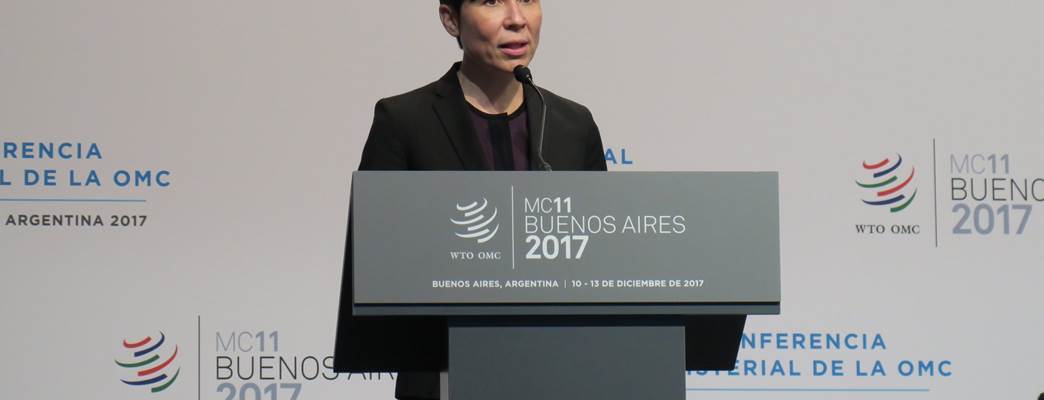Madam Chair, Ministers, Excellencies – Ladies and Gentlemen,
Let me start by thanking Argentina for hosting this Ministerial. I would also like to thank the Director General, Roberto Azevêdo and his team for their work over the last few months.
Madam Chair,
Safeguarding the rules-based multilateral trading system is Norway’s primary trade policy priority.
We face major challenges:
- Unresolved burden sharing between developed and emerging economies;
- A growing backlash against globalisation and increased protectionism; and
- Insufficient integration of developing economies into the global trading system.
I am deeply concerned about the empty seats in the Appellate Body. We need a well-run dispute settlement system – and we need to avoid politicising the core functions of the WTO.
Madam Chair,
Keeping expectations realistic will be crucial for success at MC11. It will be easier to reach compromises if we bear in mind the fact that there will also be opportunities to continue this work after Buenos Aires.
Madam Chair,
Norway is continuing its engagement in the negotiations on fisheries subsidies. A partial result that would enable us to start implementing SDG 14.6 in the WTO is within our reach.
On agriculture, results can hopefully be achieved on public stockholding and on export restrictions, while it seems clear that the broader conversation on agriculture will have to continue after Buenos Aires.
Norway also strongly supports the integration of developing economies into the global trading system. How trade can work for development in the 21st century is a conversation that we need to have, in order to build trust and secure the future of the multilateral trading system.
Madam Chair,
Going beyond Buenos Aires, we are prepared to listen carefully, and to engage constructively with all members that have grievances with the system. However, we are not willing to let the demands of any one member put the system at risk.
In these challenging times for international trade, we need a forward-looking WTO more than ever:
- a WTO that can adapt to changes in the global economy, such as digitisation and global value chains,
- a WTO where trade rules are negotiated, implemented and enforced, and
- a WTO where trade disputes are solved peacefully through an effective dispute settlement mechanism.
Thank you.
